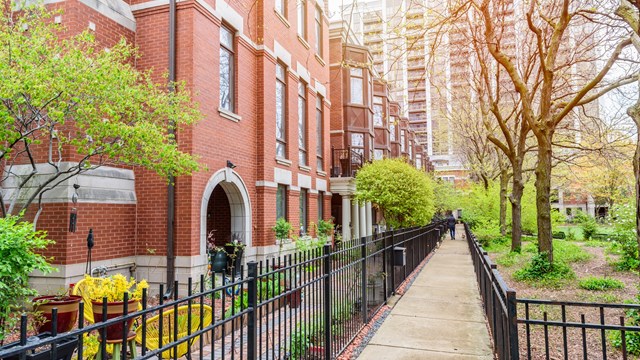As the climate crisis has worsened, governments at the federal, state, and local level have made attempts to legislate solutions. While necessary, that three-pronged approach can often make compliance a complicated process for multifamily buildings and associations.
A Question of Efficacy
Many moons ago, cigarette smoking was permitted everywhere—on airplanes, in restaurants, even doctors’ waiting rooms. Then various levels of government and businesses began to set limits on where and when smokers could indulge. The anti-smoking movement and reasoning behind it parallel the problem facing us today with climate change. While airlines and dining establishments may have designated certain areas as ‘smoking sections,’ the smoke itself of course went wherever the air currents carried it—including into ‘non-smoking’ sections.
So it is with climate change. Those who live in jurisdictions where the government and citizens are making an effort to reduce the carbon emissions that contribute to climate change are still affected by neighboring jurisdictions that don’t. Like smoke, climate change and its effects don’t stop at artificially drawn borders. Nevertheless, all efforts count. Some—specifically those undertaken by large municipalities—may have more impact because they cover larger geographic areas than those made by smaller jurisdictions, but they don’t erase the problem completely. They may slow the progress of the problem, but they are not a cure.
Play, or Pay?
With all of that in mind, shared interest communities must consider many factors when making efforts to comply with energy conservation laws and ordinances, or in choosing not to comply in certain instances. Indeed, there may be times when requirements for compliance are so onerous that a board may be tempted to just pay the fine rather than abide by the law.
Tempting as it may be, however, flouting the law to save money in the short run is not something Michael Kim, an attorney of counsel with Chicago-based law firm Schoenberg Finkel Beederman Bell Glazer LLC recommends. He spells out why:
“As an attorney, I cannot advise a client to break the law,” says Kim. ”I can advise a client of the consequences of violating or not complying with the law, such as potential fines and penalties, liabilities, etc. For example, if the law deals with life safety concerns, violation of such a law may incur not only governmental fines but also potential civil liability to association members and/or the general public for any injury caused by that violation. There may also be consequences arising from any agreements between the association and third parties; for example, if the association has a loan agreement with a lender, that agreement will likely have a provision whereby the property must be kept in compliance with legal requirements; failure to do so would constitute a default under the loan.
“Similarly,” Kim continues, “insurance applications or renewals typically have a required representation by the association that it is not aware of any illegal or hazardous condition of the property that has not been disclosed in the application. In sales and refinancing of units, lender/mortgagee questionnaires usually require disclosure of legal violations and making false statements could be considered mortgage fraud, which is not insurable by the association’s insurance coverages.
“Lastly,” he says, “simply paying a fine does not eliminate or cure the violation, and fines will likely accrue, and may engender escalation by the agency or authority to take formal legal action. If the association simply does not have the funds to cure a violation, it may be able to work out an arrangement whereby it can obtain an extension of time to cure the violation condition, stop the accrual of fines and defer enforcement.”
Chicago’s Legal Landscape
While many large municipalities across the country have drafted energy laws that apply directly to multifamily buildings and associations, Kim says that in Chicago, “Things have been rather quiet on the association front. Our state legislative session adjourned on May 31, but you never know what gets thrown into the legislative hopper in/for the next session. The City is struggling with its budget (that’s not news) which understandably is the focus of attention.”
That said, the Windy City has adopted a number of local laws and ordinances aimed at promoting energy conservation and efficiency within the city more generally. The Chicago Energy Transformation Code (CETC) establishes minimum energy conservation requirements for new and remodeled buildings. It goes beyond the state's Illinois Energy Conservation Code by including additional Chicago-specific requirements such as: solar-ready roofs, requiring at least 40% of the roof area to be designated as a solar-ready zone. It also requires electrification-ready residences requiring adequate electrical capacity and wiring for indoor cooking, hot water heating, and clothes drying. Finally, balcony and parapet insulation mandates continuous insulation for exterior balconies and parapet walls.
There is also the Chicago Energy Benchmarking Ordinance which requires buildings size to report their energy use annually. Chicago’s Sustainable Development Policy (SDP) promotes sustainable construction design elements that focus on increasing energy efficiency, decreasing greenhouse gas emissions, improving public health, managing stormwater, promoting more efficient transportation, diverting waste, promoting workforce development, and protecting wildlife.
A Proposed Clean and Affordable Buildings Ordinance (CABO) aims to lower utility costs, improve public health, create jobs, and reduce carbon emissions. It is also important to note that the Illinois Energy Efficient Building Act requires new construction, additions, and renovations in the state, including Chicago, to comply with the Illinois Energy Conservation Code.
In Other Mixed Urban-Suburban Markets
New York City has some of the most extensive and forward-looking local laws dealing with energy use anywhere in the country. Local Law 97 (LL97), the centerpiece of the City’s attempts to control carbon emissions, seeks to make the Big Apple carbon neutral by 2050. Its multiple components are being phased in over time, with the first major push for individual properties to control emissions evaluated in 2025. The next milestone year is 2030. Local Law 97 is so far-reaching, it figures into virtually every decision a co-op or condo will make about its physical plant.
Dan Wollman, CEO of NYC-based management firm Gumley Haft explains that LL97 work and requirements deal with energy benchmarking—the process by which a given building’s energy usage is measured and reported to the City. “You get a score based on your benchmark [numbers],” he says, “and that score is compared to other similarly-sized buildings to generate a letter grade. Everything we do now with regard to our physical plant is geared towards improving our LL97 score. If you don’t make the grade in 2030, you may be subject to a carbon tax.”
Across the Hudson, things look a bit different. “There’s no LL97 type law anywhere in New Jersey,” says Michael Simone, principal of The Simone Law Firm, located in Cinnaminson. “However, one piece of legislation passed several years ago pertains to solar panels. HOAs are not permitted to prohibit the placement of solar panels on the roofs of individual member homes. Laws in New Jersey encourage associations to work with homeowners to shift to solar for the community, but the discretion remains with the association to permit or not permit individual solar panels.”
Given that New Jersey is much more suburban in character and therefore much more car-dependent than a denser urban area like New York City, a real legislative effort has been made to encourage the migration to electric cars.
“The state has passed laws about electric vehicles (EVs) and charging stations,” says Simone. “The complication is the location and initial cost of setting it up,” as well as the potential for associations to lose one or more precious resident parking spots to install EV charging stations. “It’s a one vs. many question. It’s a bigger problem in a multifamily condominium with a garage than, say, a townhome-style development with parking lots.”
A Word About Reserve Studies
In the wake of the deadly Surfside, Florida, building collapse disaster a few years back, some states—including Florida and New Jersey—have enacted laws that require condominium associations to complete regular reserve studies. Reserve studies are a direct investigation into the state of an association’s physical plant. While they are primarily concerned with the safety and reliability of the structure and its various components, these studies can also be used to determine whether action should or should not be taken on certain building systems that may also impact energy use and consumption. While the primary concern of a reserve study is to determine the continued viability of individual building systems—such as a roof—they can also tell us whether the roof is effective in terms of overall energy consumption and conservation, and whether it might need to be replaced for that reason.
Illinois state law does not require HOAs and condominium associations to conduct formal reserve studies, but the Common Interest Community Act (CICA) does mandate that annual budgets include "reasonable reserves" for capital expenditures and deferred maintenance of common elements. Similarly, the Illinois Condominium Property Act requires boards to adopt budgets with reasonable reserves for common elements. So while it’s not legally required, a professional reserve study is considered a best practice for determining the appropriate reserve funding levels for a given community, and may be stipulated in an association's own governing documents.
Useful as they are, however, completing a reserve study may complicate other matters. For example, “In New York,” explains Wollman, “reserve studies are not required and we don’t recommend them. It’s valuable and important to understand the infrastructure of your building, but not through a reserve study. We do systems studies and we make projections for repairs but we don’t want to get into specific reserves. If you do a reserve study, you must disclose it in your financial statement, and you have to give it to purchasers. There’s a footnote in most financial statements saying that a study wasn’t done. The real estate industry puts this in so that they don’t have to include it. If the study says it will cost X-dollars to repair something, and five years later the reality is that the real cost was Y-dollars, it could open up a lawsuit. That’s the legal reason we don’t do reserve studies.”
By contrast, Simone explains that in New Jersey, “In January 2025, a new law regarding reserve accounts went into effect. The main aspect of the law is that a reserve study must be done every five years. Once completed, it must be furnished to all current owners in association. In addition, when someone buys a unit they must also receive the latest reserve study. The passage of the law was an outgrowth of what happened in Surfside, Florida.”
Regardless of your state’s position on local energy laws or reserve studies, public funds to help defray the costs associated with both or either, are available. So confer with your management and legal counsel to map out a plan for achieving compliance, and check with your local utilities and with state government offices to learn more about the tools and resources available to help you get there.
A.J. Sidransky is a staff writer/reporter for CooperatorNews, and a published novelist. He may be reached at alan@yrinc.com.










Leave a Comment